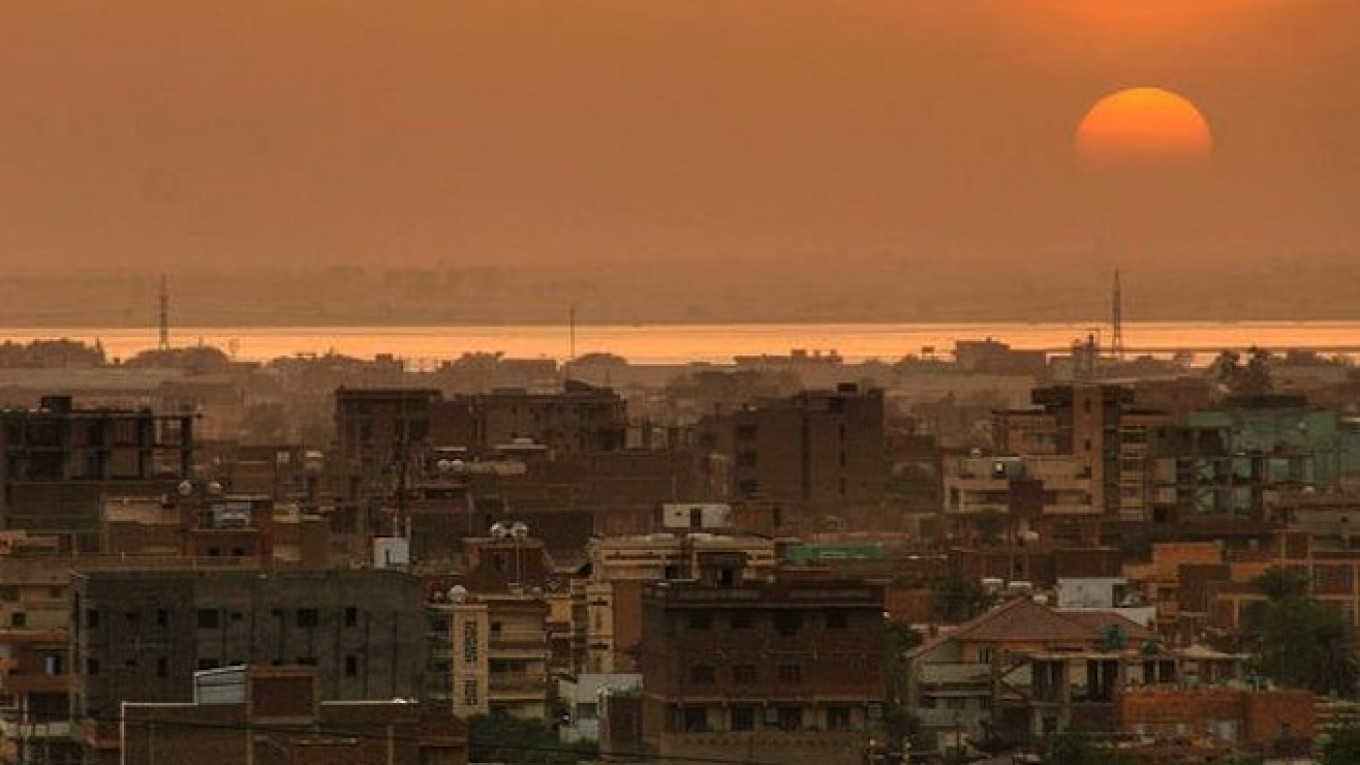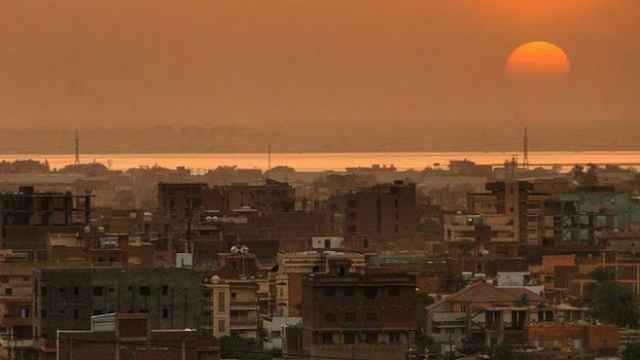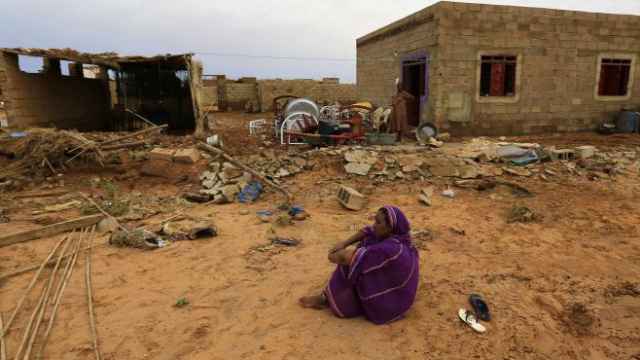As news broke that two Russian nationals had been kidnapped in Sudan's Darfur region, experts diverged on Moscow's standard practice for recovering hostages captured abroad.
The two Russians are employees of UTair, a Russian airline that has been commissioned to work for UNAMID, a Darfur-based peacekeeping operation run jointly by the United Nations and the African Union.
"A UNAMID minibus was blocked by six cars. The passengers were forced to get off the minibus at gunpoint and led in an unknown direction," the airline said in a statement Tuesday. The men were kidnapped near the town of Zalingei last Thursday, though news of their plight only broke days later.
The hostage-takers did not identify themselves, but Sudan's ambassador to Russia — Omer Dakhab — told Rossiiskaya Gazeta on Tuesday that they were "simple bandits," and that top-level authorities in Darfur and the capital city of Khartoum are currently working to determine who was behind the abduction.
One of the hostages is a manager for UTair and the other is a technician, Russia's Investigative Committee revealed in a statement.
Russia's Foreign Ministry issued a statement on Tuesday evening saying that the two hostages have been identified, adding that neither has sustained any injuries as a result of the kidnapping. The ministry referred to the kidnappers as "unknown armed people."
For more than a decade Darfur has been the site of a relentless, bloody conflict between government forces and local rebel groups seeking autonomy from Khartoum. Numerous militias are currently operating in the area.
Dakhab said that the kidnappers have already demanded ransom, showing evidence of — in the ambassador's view — a strictly financial motive. He did not specify the amount of money sought in his comments to Rossiiskaya Gazeta.
Moscow's Next Move
So far, none of the Russian officials who have spoken publicly of the incident have confirmed the kidnappers' ransom demand. Another issue left hanging in the balance is that of whether the kidnappers have any chance of a Russian payday.
According to Sergei Goncharov — a terrorism expert and head of Alpha Elite, an advocacy group for veterans of Russia's special forces — Moscow never pays ransom for hostages.
"There has never been a situation when Russia paid [for the release of nationals held hostage abroad]. And this isn't only Russia; it's an international practice," Goncharov told The Moscow Times in a phone interview.
However, in light of the ongoing conflict in Darfur, the kidnappers may have taken the Russians captive in a bid to compel the release of rebel prisoners, Goncharov said. In this case, Russia could help ensure the hostages' release by pressuring Khartoum to comply with the rebels' demands.
"There is a different attitude toward Russia in [countries such as Sudan] than to western states," he said, pointing out that no Russian hostage kidnapped in a foreign country has ever been publicly executed. "This is our advantage."
In recent months, the grisly beheadings of U.S., British and Japanese citizens taken hostage by the Islamic State have been video-recorded and uploaded online. While some hostages kidnapped by the terrorist organization have been released, others have died grisly, public deaths.
The Islamic State, captors of U.S. journalist James Foley, demanded 100 million euros for his release. After receiving nothing from Washington, Islamic State militants beheaded Foley in August, days after voicing the request.
Most recently, the Islamic State beheaded Japanese hostage Kenji Goto in Syria last week after the Japanese government refused to pay the demanded sum of $200 million, or to facilitate Jordan's release of Sajida Mubarak Atrous al-Rishawi, an attempted suicide bomber, as demanded by Goto's captors.
In an interview with Kommersant-FM radio on Tuesday Boris Dolgov, senior researcher with the Middle East Institute at the Russian Academy of Sciences, said that it is very unlikely that the Islamic State was involved with the hostage-taking in Sudan last week, even though its activities now stretch beyond the borders of the Middle East.
Standard International Practice
Goncharov told The Moscow Times that the fact the hostages had been carrying out contract work for the United Nations implies that the two enjoy a special international status, which may assist in securing their release. The Interfax news agency reported Tuesday that UNAMID is already working with the Sudanese government in an effort to liberate the two Russian hostages.
Irina Borogan, a security services expert and deputy editor of advocacy site Agentura.ru, said that while their UN status may help foster the hostages' release, most states — including Russia — have paid ransom in the past.
"Everybody pays ransom, but nobody makes it official in order to avoid provoking more kidnappings," Borogan said in a phone interview. "Nobody will ever admit it, but security officials actually talk openly about this off the record."
According to Adam Dolnik, professor of terrorism studies at the University of Wollongong in Australia, the Islamic State has profited immensely from ransom payments, having already raised up to $45 million through such demands.
"A strict 'no concessions' policy limits options for the safe return of hostages without delivering on any of its promises," Dolnik wrote in an article for Foreign Affairs magazine last January.
In July 2010, a UTair pilot was captured by local rebels in Sudan, who demanded ransom. He was released three days later.
This past August, a Mi-8 UTair helicopter that was being used for a UN mission in Sudan was downed by a missile that had been fired from the ground. Three out of the four Russian crew members were killed in the attack.
Contact the author at [email protected]
A Message from The Moscow Times:
Dear readers,
We are facing unprecedented challenges. Russia's Prosecutor General's Office has designated The Moscow Times as an "undesirable" organization, criminalizing our work and putting our staff at risk of prosecution. This follows our earlier unjust labeling as a "foreign agent."
These actions are direct attempts to silence independent journalism in Russia. The authorities claim our work "discredits the decisions of the Russian leadership." We see things differently: we strive to provide accurate, unbiased reporting on Russia.
We, the journalists of The Moscow Times, refuse to be silenced. But to continue our work, we need your help.
Your support, no matter how small, makes a world of difference. If you can, please support us monthly starting from just $2. It's quick to set up, and every contribution makes a significant impact.
By supporting The Moscow Times, you're defending open, independent journalism in the face of repression. Thank you for standing with us.
Remind me later.






